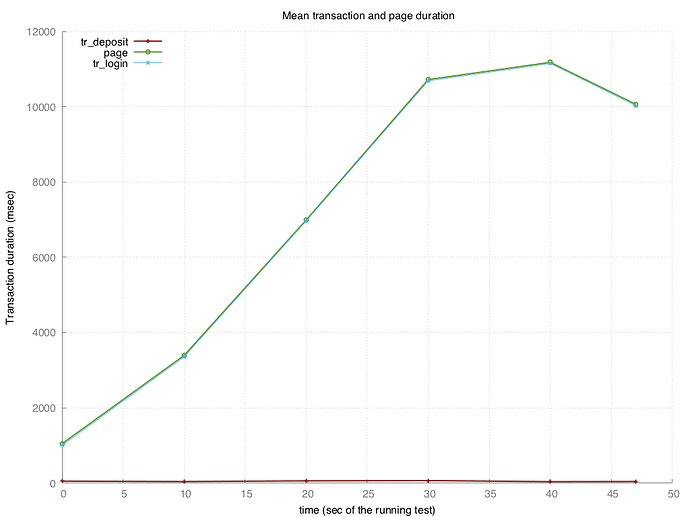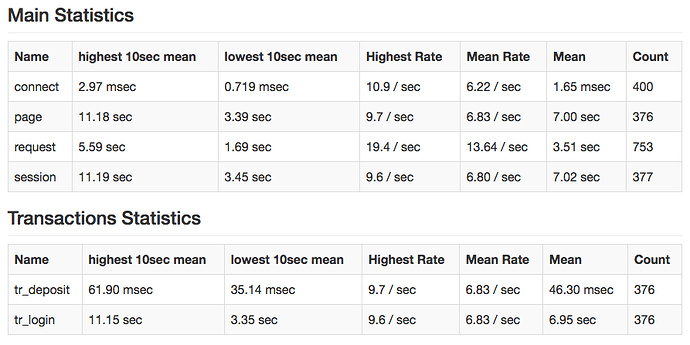I have an elixir/Phoenix app which I am currently load/stress testing before releasing into the wild.
Currently using Tsung as my test tool.
When running test on my local machine (distillery release in PROD mode) the transaction times seem to increase with every user login.
I have run similar tests on the production environment and it seems to follow the same pattern.
See graph below.
tr_deposit is a POST request. this is fine and always under 1 second.
I’ts the logins and page requests that worry me. Is this normal?
even when i change the comeonin bcrypt_log_rounds to 4 it follows a similar curve, although slightly faster.
Note: This is on a phoenix browser pipeline but with CSRF disabled. With CSRF Tsung does not seem to be able to accurately post and I end up getting lots of 403’s.
How is this explained?
What would be a realistic expectation of transactions times when you have 10 users a second logging in?
I thought that these sort of numbers would be easy to manage in Phoenix?


























